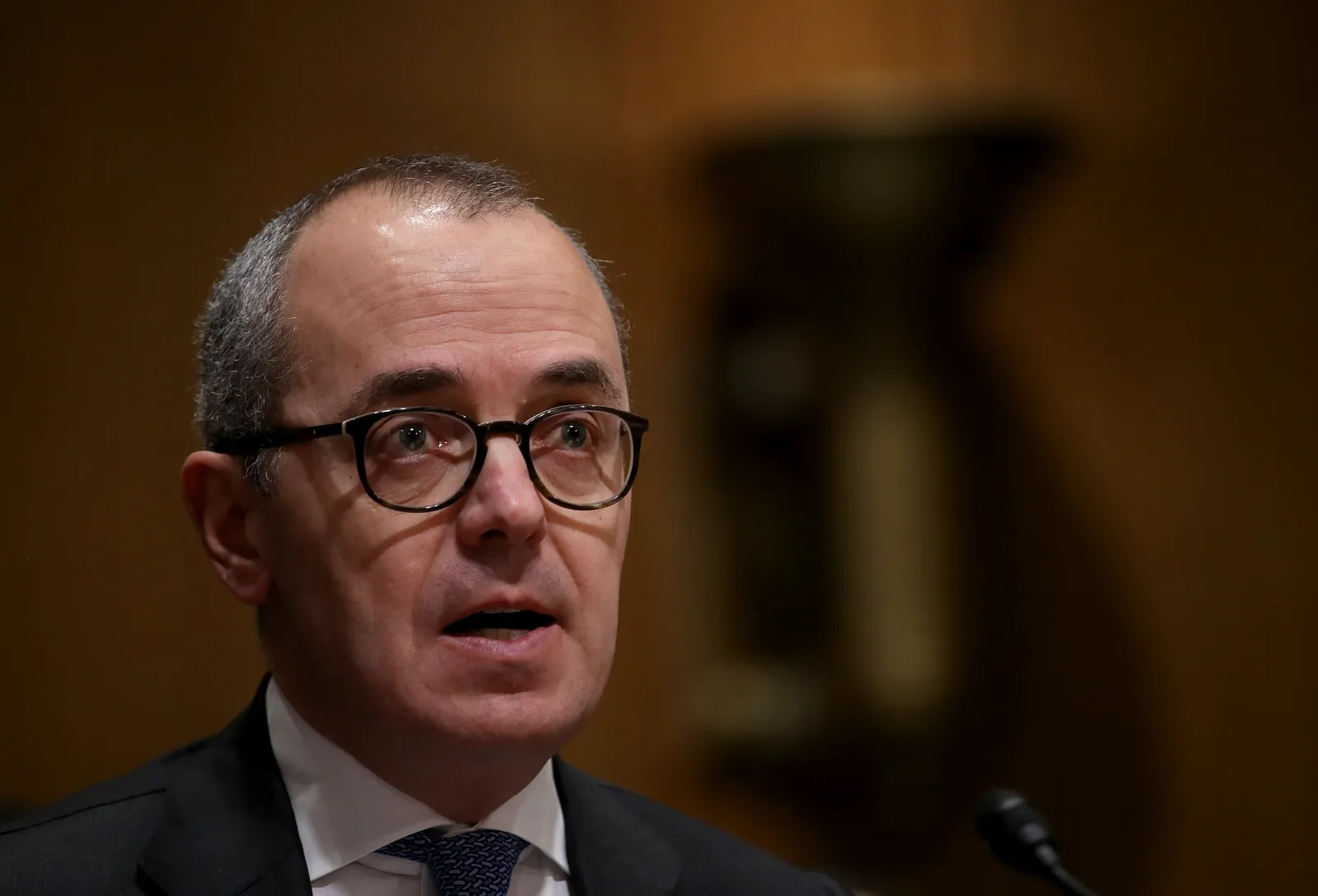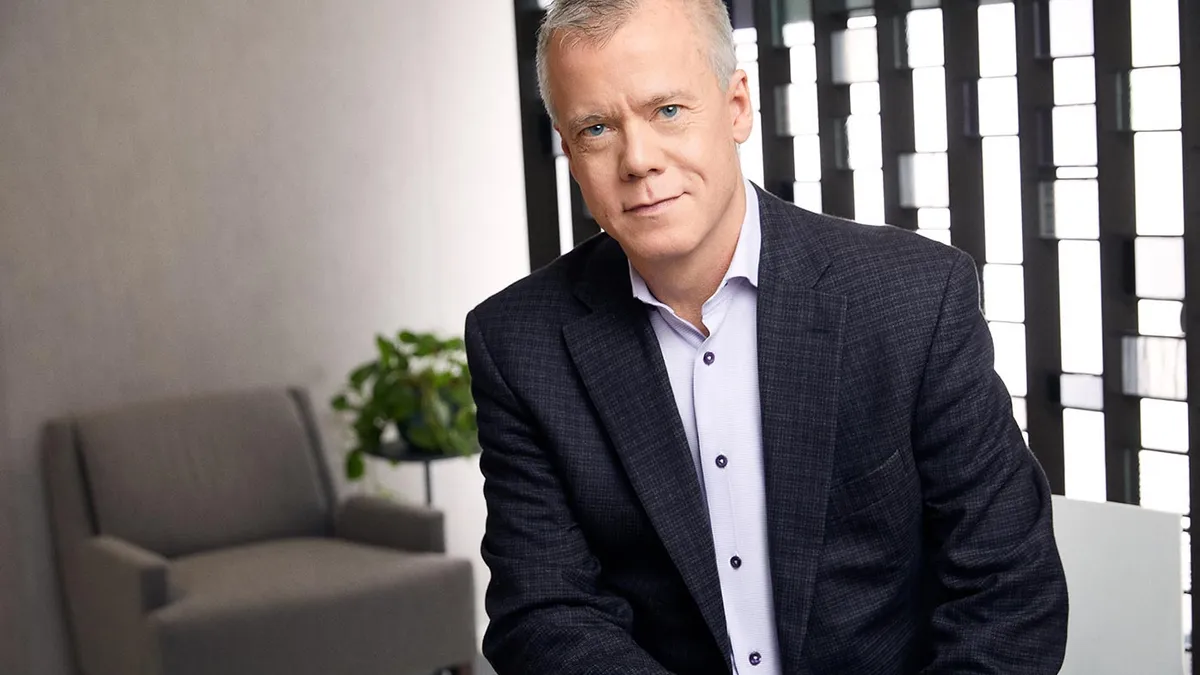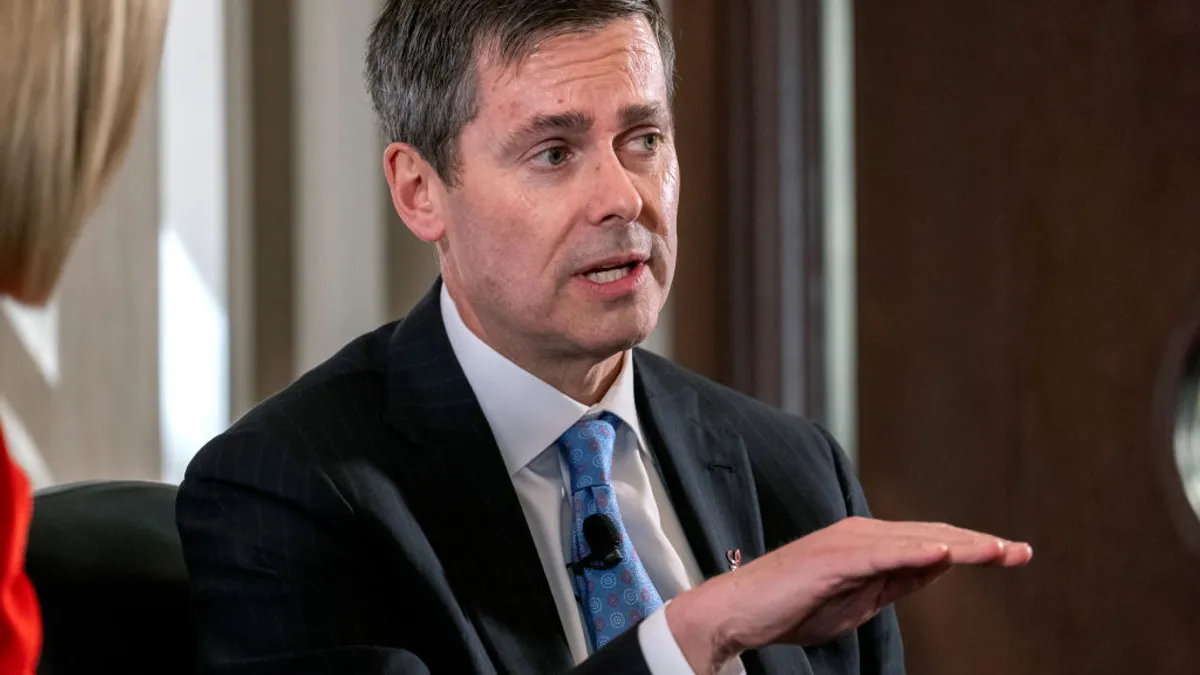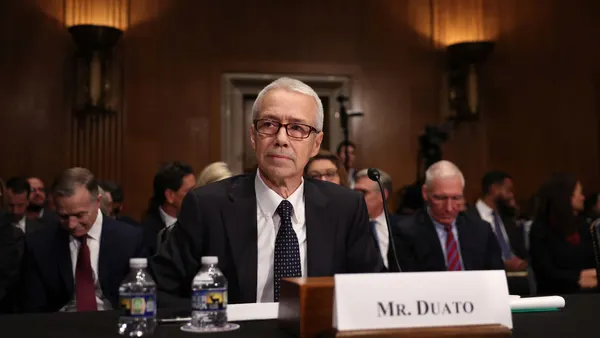Bristol Myers Squibb CEO Giovanni Caforio will step down in November, paving the way for a new crop of leaders as the company stares down patent cliffs for two of its bestselling drugs later this decade.
The company reported a 3% drop in first-quarter earnings year over year as the 58-year-old announced his retirement earlier this week. The company blamed earnings dip on the patent expiration of its chemotherapy Revlimid in European markets.
Christopher Boerner, the company’s chief commercial officer, is set to take the reins upon Caforio’s retirement. In the meantime, he will assume the role of chief operating officer and Adam Lenkowsky, head of international markets, will take over Boerner’s commercial role.
Background: Caforio has notched a number of major achievements for BMS during his eight-year tenure as CEO, notably rocketing the blood thinner medication Eliquis and the cancer immunotherapy Opdivo to blockbuster status and inking the company’s $74 billion acquisition of Celgene in 2019.

But his retirement comes at a major inflection point for the pharma giant, as it prepares for both drugs to lose exclusivity in the coming years — Eliquis beginning in 2026 and Opdivo in 2027 — and as it renews its portfolio with a slate of recently approved and late-stage medications.
Boerner will be tasked with steering the company through the uncertain waters and launching its next successes. But it’s familiar territory for the executive, who began his career as an industry consultant for McKinsey and Co., before moving to business-focused roles at Dendreon, Genentech and later Seagen.
Throughout his career, Boerner’s garnered deep experience launching cardiovascular and cancer medications, having directed the marketing for Genetech’s blockbuster blood vessel growth inhibitor Avastin and Seagen’s antibody-drug conjugate Adcetris to treat multiple types of lymphoma, as well as countless medications at BMS.
Having started at BMS around the same time Caforio took over as CEO in 2015, Boerner has adopted a similar leadership style. Just as Caforio is credited with building more inclusivity at BMS, Boerner has served as an active champion of diversity. He notably leads the Network of Women (B-NOW) People and Business Resource Group at the company and was recognized last year by the Healthcare Businesswomen’s Association (HBA) as an honorable mentor.
Why it matters: BMS began its portfolio renewal efforts in earnest last year with the launch of nine new products including potential blockbuster’s like Sotyktu for plaque psoriasis, Opdualag for melanoma and Camzyos for obstructive hypertrophic cardiomyopathy. And Opdualag alone is projected to generate sales upwards of $4 billion annually by 2029.
However, those efforts appear to be just the beginning of BMS’s battle plans for overcoming its patent cliff woes. During the J.P. Morgan Healthcare Conference this year, Boerner said he expects six other late-stage assets to have “in excess of $10 billion in sales potential.”
Among those is the experimental blood thinner milvexian BMS it is developing with Johnson & Johnson. It’s a Factor XIa inhibitor being tested as an alternative to Eliquis to treat venous and arterial thromboembolism with potentially a lower risk of bleeding. Boerner estimated the drug has an “excess of $5 billion of potential across three indications.”
Learn more: For an inside look at BMS’s approach to ushering blockbuster drugs from discovery to launch, we spoke with one of its senior principal scientists who helped develop Sotyktu, the first TYK2 inhibitor to reach the mark.












